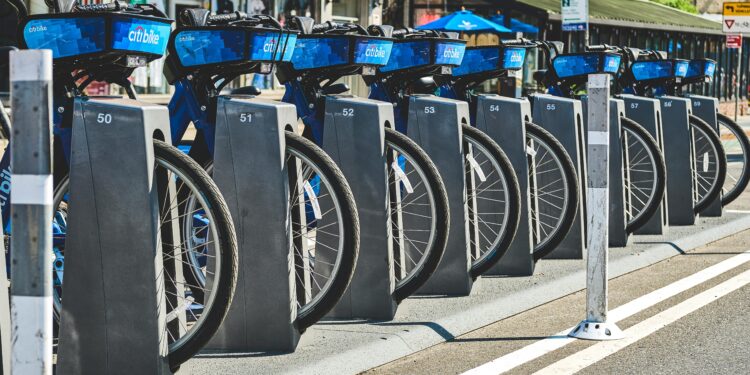On Wednesday, July 10th, Citi Bike will implement a significant price increase, raising the cost of its services by 20%. This price hike affects both members and non-members, marking another financial burden for New York City commuters. The Lyft-operated bike-sharing service announced that the price changes are due to higher-than-anticipated costs for battery swapping, insurance, and vehicle maintenance.
Annual members of Citi Bike and Lyft Pink All Access will see their per-minute fees for classic and e-bikes increase from 20 cents to 24 cents. Non-members will face a rise from 30 cents to 36 cents per minute for single rides. This increase has left many riders considering alternative transportation options. Travontae Gorman, a frequent Citi Bike user, commented, “I just don’t really like taking the train, so I use Citi Bikes, but at this point, it just seems more affordable to get your own bike.”
Harlem resident Blessing Watson echoed these sentiments, expressing frustration over the rising costs. “They are just too expensive for how they work and the quality,” she said. Watson, like many others, is now contemplating purchasing a personal bike.
Citi Bike first launched in 2013 with 6,000 bikes and 332 stations across Manhattan and Brooklyn. It has since grown significantly, boasting over 30,000 bikes across multiple boroughs and New Jersey. Despite its popularity, the recent price hike has raised concerns about the service’s affordability and accessibility.
The price increase only affects rides within New York City, not those in New Jersey. Lyft attributed the hike to operational costs exceeding their initial projections. A spokesperson stated, “We’ll continue to invest in more manual battery swapping to ensure you can find an e-bike that’s charged and available for use.”
The future of Citi Bike remains uncertain as Lyft has announced plans to sell the service. This move has sparked concerns about the sustainability and management of the bike-sharing system. The NYC Comptroller’s Office highlighted these issues, noting, “Lyft’s downturn poses serious challenges for the City of New York, which has come to depend on Citi Bike as an essential transportation service.”
Citi Bike users are not alone in facing rising commuting costs. NJ Transit riders have experienced a 15% fare increase for buses, railroads, and light rail lines since July 1. Additionally, MTA fares for subways, buses, and commuter railroads are expected to rise by 4% in 2025 and again in 2027, raising the cost of a single subway ride to approximately $3.14.
As transportation costs continue to climb, New Yorkers are left grappling with the financial strain. The increase in Citi Bike fees is just one of many examples of how commuting in the city is becoming increasingly expensive.










